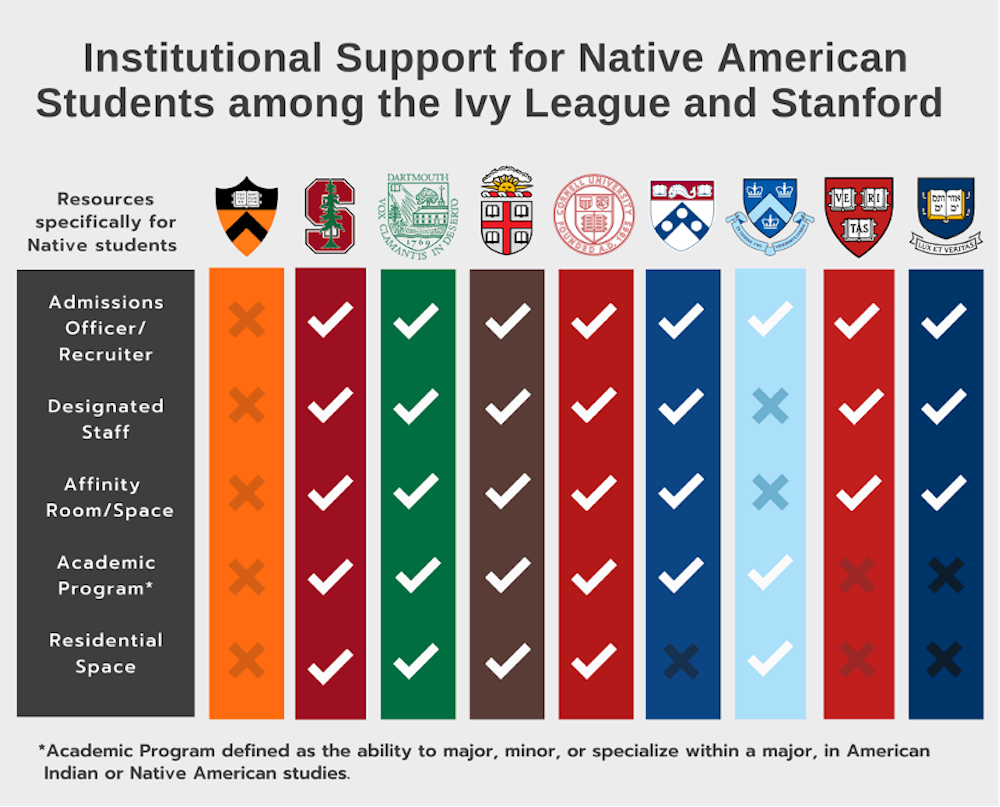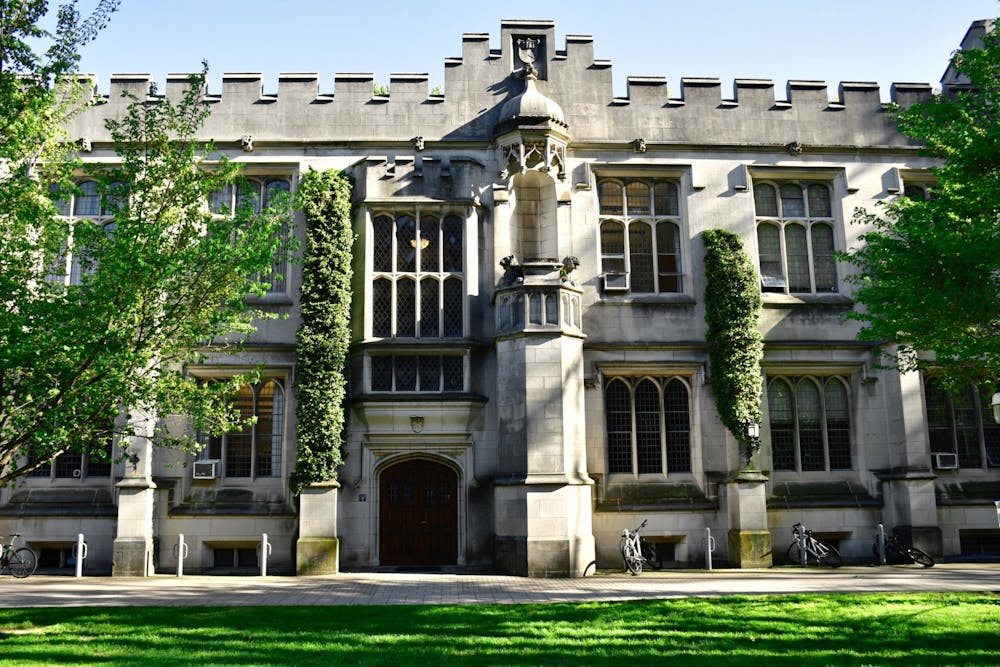Days after the University announced the creation of an endowed professorship of Indigenous Studies, the Humanities Council awarded an Exploratory Grant in Collaborative Humanities to Professor of English and American Studies Sarah Rivett. The grant will enable Rivett to launch the Native American and Indigenous Studies Initiative (NAISIP), which will include a working group for the next academic year.
The working group will build upon Rivett’s previous collaborations with the student group Natives at Princeton (NAP), the Princeton Indigenous Advocacy Coalition (PIAC), and the Native American Alumni of Princeton.
In an interview with The Daily Princetonian, PIAC leaders Keely Toledo ’22, Jessica Lambert ’22, and Gabriel Duguay ’22 emphasized the importance of this initiative and what they hope to see moving forward.
“This initiative is important not only because Princeton has historically underrepresented Indigenous topics in its curriculum, but it has especially failed compared to its peers,” Duguay explained.

To Duguay, the next step is “to see the administration really putting in time and effort to plan the growth of Indigenous Studies, rather than letting it happen organically.”

Rivett highlighted the role of PIAC in advocating for Indigenous Studies and for formalized University commitment to supporting Native students in the past.
“It was inspiring to hear their goals and their vision for the future of the field at Princeton,” she wrote in an email to The Daily Princetonian, and noted that the working group is an attempt to “continue the conversation that the students have largely started and to formalize faculty involvement in their efforts.”
Rivett has advocated for Indigenous Studies throughout her teaching and research career.
“Facilitating the growth of a thriving Indigenous Studies curriculum was a priority and commitment” of hers, she wrote to the ‘Prince.’

Rivett added that her primary reason for establishing the working group was to create a “collaborative, cross-disciplinary conversation about Native American and Indigenous Studies at Princeton among faculty, students, and staff.”
Rivett’s area of expertise is in early American literature. She feels it is “not possible to be a good scholar of early America and not advocate for Indigenous Studies. Indigenous Studies is integral to the study of ‘America,’ in any time period and from any disciplinary perspective,” she wrote.
Rivett hopes for the working group to set up collaborative events, including a lecture series that will bring prominent Natives to campus, a conference focusing on Indigenous storytelling and environmental change in the American Arctic and Siberia, and a symposium on Lenape/Lunaape language that will be organized with the Munsee-Delaware Nation, the Ramapough Lenape Nation, and the Nanticoke Lenni-Lenape.
Rivett told the ‘Prince’ that while she is still in the process of forming the group, she has already begun collaborating with other professors to advance Indigenous Studies at the University.
She is working with Professor of Medieval History Suzanne Akbarito to support the revitalization of the Lenape/Lunaape language and Professor of Music Simon Morrison to “organize a symposium on Indigenous storytelling and reindeer herding in honor of the next Distinguished Professor in Canadian Studies.”
Rivett added that she plans to invite the co-presidents of the student group Natives at Princeton (NAP), graduate student organizers of the Princeton American Indian and Indigenous Studies Working Group, Curator of American Books and Western Americana Gabriel Swift from Firestone Library, and Curator and Lecturer of the Art of the Ancient Americas Bryan Just from the Princeton University Art Museum to be a part of the working group.
She noted that similar institutions have had major programs and professors dedicated to Indigenous Studies for decades. She added that so far, the majority of change has come as a result of student push and student advocacy.
Within the University, student advocates, including Toledo, Lambert, and Duguay, have outlined a number of goals for the initiative, with an emphasis on increasing Native representation and mentorship at the University.
PIAC advocates for the University to establish a certificate program, appoint staff members to support and mentor native students, and to eventually establish a department in Indigenous Studies. Ideally, they noted, there will be greater Indigenous representation across a variety of disciplines, particularly in interdisciplinary fields.
“There is a wealth of Native scholars out there, and there is not a lack of Native intellectuals,” Toledo noted.
Lambert stated that she appreciates having “more formalized University channels doing this advocacy work, as prior to that it has been primarily led by students.”
Duguay echoed this sentiment, emphasizing that until the launch of NAISIP, there “wasn’t a sustained effort to have the University systemically go about working on Indigenous issues.”
He further highlighted the University’s passive approach to recruiting Native students, noting his belief that the shortage of demand for Indigenous Studies courses comes as a result of the widespread lack of Indigenous students on campus.
Moving forward, PIAC hopes that rather than having to rely on one-time grants, they can instead look to the University to support a continuous speaker series and to take initiative in addressing the issues that student groups have been advocating for.
“Now that student demand has been well established and now that Indigenous students and alumni have worked together to get a major gift to the University, the University has to capitalize on the work students and staff have done for it to create a strong program that I believe will be of great importance and a source of great pride for Princeton,” Duguay said.








